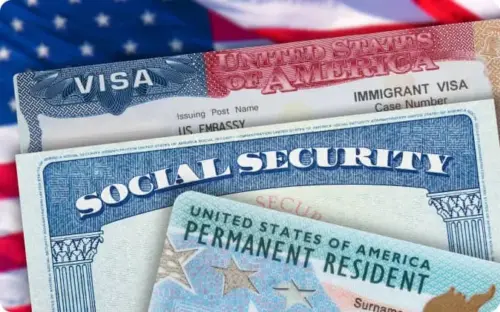The employment-based (EB-1) visa is a critical pathway for individuals seeking permanent residency (PR) in the United States, particularly for those with exceptional talents in their respective fields. Proper planning and strategic execution are essential to succeed in this immigration category.
The EB-1 visa caters to individuals with extraordinary ability in sciences, arts, education, business, or athletics, backed by national or international acclaim. Applicants are required to either demonstrate a one-time major achievement, such as winning a Pulitzer Prize, Oscar, or Olympic Medal, or meet at least three of ten established criteria set by the U.S. Citizenship and Immigration Services (USCIS).
According to the 2023 Yearbook of the Office of Homeland Statistics, 2,960 Nigerians gained permanent residency through employment-based routes in 2023, out of 15,790 Nigerians who received PR via other channels. The EB-1 visa remains a key avenue for skilled professionals aspiring to build a future in the U.S.

To qualify for an EB-1A visa via the extraordinary ability category, applicants must present evidence of either a major one-time achievement or meet at least three of the following criteria:
- Receipt of lesser nationally or internationally recognized prizes or awards for excellence.
- Membership in associations requiring outstanding achievements of members.
- Published material about the applicant in professional publications or major media.
- Invitations to judge the work of others in the field.
- Original contributions of major significance in the field.
- Authorship of scholarly articles in notable publications.
- Display of work at artistic exhibitions or showcases.
- Performance in a leading or critical role in distinguished organizations.
- High salary or remuneration compared to others in the field.
- Commercial success in the performing arts.
Arjun Lalwani, a product manager at Google, shared his journey to obtaining permanent residency through the EB-1A visa. “Achieving PR through the EB-1A visa requires a strategic and well-planned approach,” Lalwani stated. His process involved rigorous self-assessment, meeting five USCIS criteria, and working closely with an experienced lawyer. His application was approved without any requests for evidence (RFEs) in June 2024. He emphasized critical steps for success, including; conducting a self-assessment, rating eligibility based on criteria, gathering compelling evidence, consulting professionals early in the process, building a strong network and highlighting unique contributions to the field.
Immigration attorney Poonam Gupta noted that under stricter immigration policies, such as those introduced during the Trump administration, EB-1 applications face higher scrutiny. She highlighted the importance of preparing large applications that can withstand policy changes. She advised applicants to secure strong recommendation letters detailing their specific contributions and to stay updated on policy developments. She warned of potential challenges, including stricter final merits determinations, which have resulted in increased application denials in recent years.
To initiate the process, applicants must file Form I-140, Petition for Alien Worker, with the USCIS. They should also prepare detailed documentation supporting their eligibility under the required criteria.


